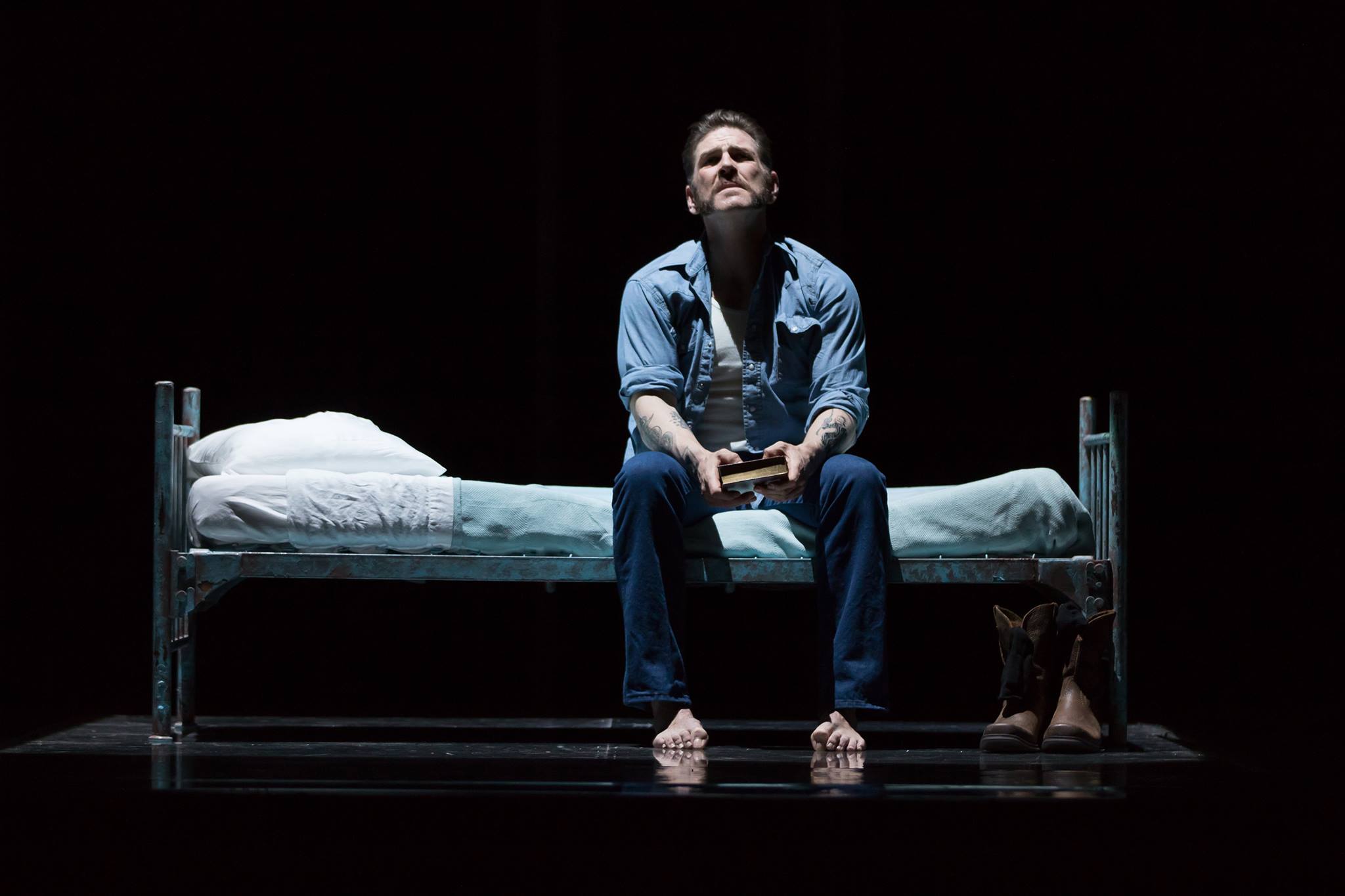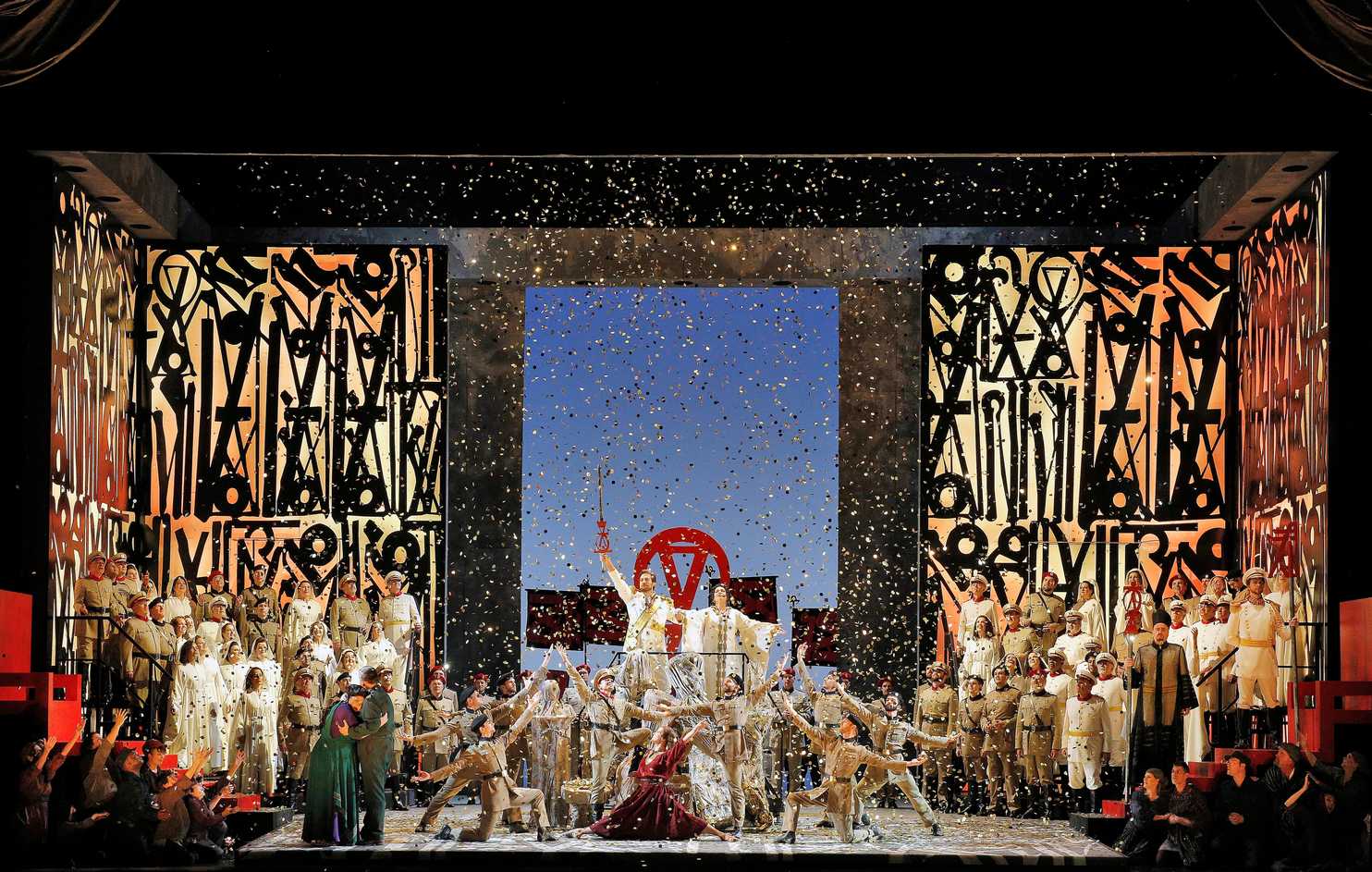Carmen

It's an odd move, based on recent comments he's made about "Eurotrash" productions, but San Francisco Opera's General Director David Gockley deserves some props for being the first to bring the work of Spanish director Calixto Bieito to American audiences. Bieito's name, whether one wants to call him a provocateur, the "bad boy" of opera, or the form's Tarantino (as SFO does in the program notes), guarantees that whatever will be on the stage will be anything but a traditional, old-fashioned night at the opera. His production of Bizet's Carmen, which originally debuted in 1999 in Catalonia and opened this weekend at the War Memorial Opera House for eleven performances with two casts, lacks the more notorious elements he's brought to the works of Mozart (a sexually charged Cosi fan tutte, a drug and booze infested Don Giovanni) and Verdi (his Un ballo in maschera opens with a dozen or so men seated on toilets doing their business before one plants a handgun in a tank) among others.
Amina Edris, Irene Roberts, and Renée Rapier in San Francisco Opera's Carmen.
Still, there's enough nudity (male), sex (simulated), and violence to satisfy the curious and offend the unsuspecting. There were a noticeable number of empty seats after the intermission on opening night, but the opera's conclusion was met with lusty applause. Undoubtedly some in the audience will feel this Carmen is burdened with gratuitous elements, while others will appreciate its shades of naturalism as appropriate to the tale.
Set in the contemporary North African Spanish city of Ceuta, Bieito's Carmen drenches the story in its verismo roots, hewing closer to the source material of Prosper Mérimée's novella and permeating each act with bullfighting's machismo mores and shadows of its obsession with life-and-death. There's nothing glamorous to see here -- just the desperate and crooked; everyday losers trapped in a never-ending cycle of poverty and crime in which succumbing to vice is the easiest escape. Symbolism is employed effectively: an Osborne Bull dominates the landscape, nodding to the country's sense of values and tradition; in the Gypsy's camp a young girl plays with a toy, oblivious to the black market taking place over her shoulder, but she's also a pawn and witness to the abusive behaviors of the adults -- another Carmen in the making; Escamillo enters the scene tossing money around like a mac daddy, drawing parallels to the uglier side of hip-hop and celebrity culture and its underlying socioeconomic desires; soldiers are punished for disobedience by running around in endless circles toting their rifles clad only in their boots and briefs, shred of all dignity; and with a surreal sense of drama, the final showdown between Don Jose and Carmen takes place inside what feels like an arena, complete with chalk lines, she dressed in a costume resembling that of a toreador, he a hulking mass of provoked anger clad in brown leather hide.
The elements for something potent are in place, aided by the crisp minimalism of Alfons Flores' sets, the costumes of Mercè Paloma, and the effective lighting design by Gary Marder. The orchestra is ably if not powerfully led by conductor Carlo Montanaro (making his company debut), and the director is Bieito's assistant Joan Anton Rechi. The only thing needed is a cast that can bring it all to life. Sadly, that's also the only thing missing.
As the supreme operatic femme fatale, the role of Carmen carries an excess of baggage. Go too big, and she becomes a caricature. Go too small and she's swallowed by the story and music. I'm going to guess there's another path that was the hoped-for result here, which was to make her as real as possible, to strip her of 150 years of fascination and turn her into an everywoman stripped of options, one who knows her sole advantages rest between her ears and her legs. That's an interesting approach, but one that seems beyond Irene Roberts' grasp here, since her portrayal lacks the stage presence to pull it off. Her voice is fine, if a tad small for the role, but at no point does she convince that she is somehow shrewder or smarter than those around her, nor any more sexually tempting or larger in stature than her friends Frasquita or Mercédès (current Adler Fellow Amina Edris and former Adler Renée Rapier, both in excellent form). As a siren Roberts' Carmen is capable of only muted whispers, leaving a passionless hole in the center of the production that's insurmountable.
Irene Roberts and Brian Jagde.
Brian Jagde's vague Don Jose is also problematic, despite killing it vocally during the final act. Neither brutish nor naive enough to be enjoyed or played, he lacks charisma on the one hand and is unsympathetic on the other. If Carmen can pick men at her pleasure, this Don Jose has nothing to offer she ostensibly couldn't find elsewhere with ease and more interesting results. There's no chemistry between them, and without it there's no danger, and while we know what's coming, neither of these portrayals rope us into caring all that much.
Likewise with Zachary Nelson's Escamillo, sung with a pleasant enough but light baritone that's missing a necessary dark allure, leaving the impression of someone playing at machismo rather than embodying it. To make Escamillo a kind of poseur would be an interesting choice, and the production seems to flirt with the idea without going all in, leaving its Carmen with another uncharismatic male option that doesn't play out with any intrigue.
As Micaela, soprano Ellie Dehn provides the vocal highlight of the production, though she's sabotaged by an unfathomably bad costume choice. As Zuniga, Adler Fellow Brad Walker possesses the menace and presence missing in Jagde's and Nelson's performances, drawing one's attention with ease when he's onstage. Edward Nelson, also an Adler, was effective as the sleazy and violent Moralès.
Is it worth seeing? That's a tough call, but the answer is yes if you're curious and want to see the first production of Bieito's to play stateside, have an interest in contemporary productions, or simply have to see Carmen every time it comes around. If those aren't your priorities, I'd look forward to its eventual return with another cast and get a ticket to Jenufa or Don Carlo instead.
San Francisco Opera's Carmen runs through July 3rd. The free simulcast at AT&T Park is July 2nd. Tickets and casting here. All photos by Cory Weaver for San Francisco Opera.
If you liked this, like A Beast on Facebook for more.







